Search Results
-
-
Multiple sclerosis - 12/03/2020 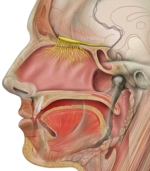
Direct application of biopharmaceuticals through the nose into the brain
There is currently no cure for multiple sclerosis, the most common neurological autoimmune disease in humans. Biopharmaceuticals that can delay the course of the disease or diminish its effects are often prevented from being fully effective by the blood-brain barrier. A European consortium led by the Fraunhofer IGB, Stuttgart is developing a new technology that can transport an innovative active ingredient directly to the central nervous system.
https://www.gesundheitsindustrie-bw.de/en/article/news/Direct-application-of-biopharmaceuticals-through-the-nose-into-the-brain -
Novel coronavirus outbreak - a status report on recent developments - 04/03/2020 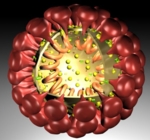
Waiting for a SARS-CoV-2 vaccine
Researchers around the world are working frantically on the development of a vaccine against the new coronavirus. A project by the Tübingen-based biotechnology company CureVac, funded by the Coalition for Epidemic Preparedness Innovations (CEPI), uses the company’s technology platform for mRNA-based vaccines to accelerate vaccine development, thus contributing to the future prevention of the disease.
https://www.gesundheitsindustrie-bw.de/en/article/news/Waiting-for-a-SARS-CoV-2-vaccine -
Article - 04/02/2020 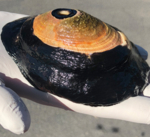
Medicine from the blue blood of marine snails
A “living pharmacy” crawls on the ocean floor off the coastline that stretches from Southern California to Mexico: biosyn Arzneimittel GmbH, a pharmaceutical company based in the city of Fellbach in southern Germany, produces a drug to treat bladder cancer, using the haemolymph, a vertebrate fluid equivalent to blood, of Megathura crenulata, commonly known as a giant keyhole limpet.
https://www.gesundheitsindustrie-bw.de/en/article/news/medicine-from-blue-blood-marine-snails -
Article - 20/01/2020 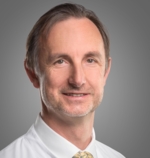
Brain tumour patients could benefit from heavy ion therapy
Glioblastoma is a malignant brain tumour. It does not respond anywhere near as well to conventional forms of therapy than other tumours because it contains particularly resistant cancer cells. Scientists at the Heidelberg Ion Beam Therapy Center (HIT) at Heidelberg University Hospital and the German Cancer Research Center have shown that heavy ion therapy is effective against these cells.
https://www.gesundheitsindustrie-bw.de/en/article/news/Brain-tumour-patients-could-benefit-from-heavy-ion-therapy -
Dossier - 06/12/2019 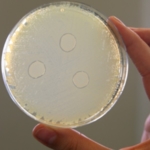
Microbiome: human health is closely connected with our microbial communities
People have 1.3 times more microorganisms than body cells. This microbial community influences how we digest our food, how active our immune system is, as well as whether we tend to be more anxious or curious. A number of diseases have also been shown to be associated with a disturbed microbiome. Researchers still have a long way to go before the knowledge acquired can be used for developing therapies.
https://www.gesundheitsindustrie-bw.de/en/article/dossier/microbiome-human-health-closely-connected-with-microbial-communities -
Article - 18/11/2019 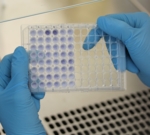
Researchers successfully rejuvenate the immune system in animal models
It is well known that stem cells age. Even the human immune system loses its power with age. Since all immune cells are derived from blood-forming stem cells, it is quite natural to associate the weakening of the immune system (immune senescence) with the ageing of blood-forming stem cells. Stem cell researchers and immunologists from the University of Ulm have now demonstrated the important role that blood-forming cells play in the ageing of the…
https://www.gesundheitsindustrie-bw.de/en/article/news/Researchers-successfully-rejuvenate-the-immune-system-in-animal-models -
Article - 08/11/2019 
Nanorobots as future minimally invasive tools for the eye
It is difficult to place drugs in the right place in the eye. When using droplets, only a small fraction of the drug reaches its target. Injecting drugs into the eye is also more a matter of luck than judgement. Basic researchers at the Max Planck Institute for Intelligent Systems Stuttgart have developed a nanorobot that can be loaded with active ingredients for treating eye diseases and directed through the solid tissue of the vitreous body.
https://www.gesundheitsindustrie-bw.de/en/article/news/Nanorobots-future-minimally-invasive-tools-for-eye -
Article - 22/10/2019 
Using CAR T cells for treating cancer
After successes in the treatment of advanced blood cancers, CAR T-cell immunotherapy has become a major beacon of hope in oncology. The first therapies have received regulatory approval. Despite their success, these immunotherapies can have serious side effects. The company AVA Lifescience develops antibodies with high tumour specificity to use as the basis for effective precision-guided CAR T-cell therapies that are better tolerated by patients.
https://www.gesundheitsindustrie-bw.de/en/article/news/using-car-t-cells-for-treating-cancer -
Article - 15/10/2019 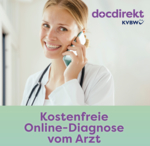
docdirekt – a smart way to contact a doctor in Baden-Württemberg
You feel unwell, but the family doctor’s practice is closed or it’s impossible to get an appointment at short notice. As part of their docdirekt project, the Baden-Württemberg Association of Statutory Health Insurance Physicians (in German: "Kassenärztliche Bundesvereinigung Baden-Württemberg (KVBW)) is now offering help for such cases. Everyone signed up to the statutory health insurance scheme will now be able to ring, contact via apps or…
https://www.gesundheitsindustrie-bw.de/en/article/news/docdirekt-smart-zum-arzt-baden-wuerttemberg -
Article - 09/10/2019 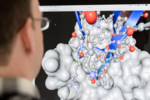
Epigenomics from the Cyber Valley
Cyber Valley Stuttgart-Tübingen is a European hotspot for artificial intelligence and home to many renowned experts and scientists. They are now joined by Gabriele Schweikert, who heads up the Computational Epigenomics research group in the Cyber Valley’s Division of Computational Biology. Schweikert is interested in exploring epigenetic mechanisms using machine learning methods.
https://www.gesundheitsindustrie-bw.de/en/article/news/epigenomik-aus-dem-cyber-valley -
Article - 30/09/2019 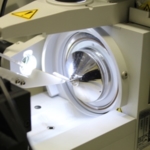
Do gut bacteria have something to do with autism?
Autistic people have different gut microorganisms than non-autistic people. Researchers believe that a disturbed intestinal flora may play a role in developmental disorders of the brain such as autism. The emerging new field of metaproteomics could shed light onto the matter. A team led by Prof. Dr. Boris Macek from Tübingen has investigated the bacterial protein pool in the faeces of mice that display autistic behaviour.
https://www.gesundheitsindustrie-bw.de/en/article/news/do-gut-bacteria-have-something-to-do-with-autism -
Expert interview on NTDs – part 3 - 24/09/2019 
Neglected tropical diseases – Franz-Werner Haas: the role of technology and pharmaceutical companies
Neglected tropical diseases (NTDs) are poverty-related infectious diseases that suffer from scant attention in terms of research or control. NTDs exist in the shadow of the "big three": malaria, tuberculosis and HIV/AIDS. They affect many people living in poverty in the emerging and developing countries of the tropics and subtropics. Active control can only be achieved when people with NTDs are treated effectively and given information…
https://www.gesundheitsindustrie-bw.de/en/article/news/vernachlaessigte-tropenkrankheiten-franz-werner-haas-die-rolle-von-technologie-und-pharmaunternehmen -
Article - 19/09/2019 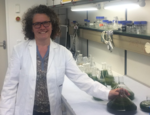
Magnetised algae as microrobots for medical and environmental purposes
Algae, for most of us, is something that lives in water courses that we occasionally find unpleasant. However, that is to do them a wrong. These extremely versatile and frugal organisms might in future prove to be extremely important. Scientists at the University of Stuttgart are investigating how algae can be used as microrobots in biomedicine and environmental remediation.
https://www.gesundheitsindustrie-bw.de/en/article/news/magnetisierte-algen-als-mikroroboter-fuer-medizin-und-umwelt -
Dossier - 09/09/2019 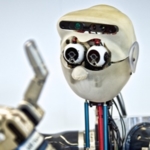
Artificial intelligence in medicine: assistance for human senses
There is no way around it. Whether we like it or not, artificial intelligence (AI) has long been part of our lives, in traffic management, marketing campaigns or in the fields of medicine and life sciences. AI is omnipresent, often without us being aware of it. Baden-Württemberg is home to one of the largest AI research consortia in Europe and has recently become one of the European hotspots for this key technology.
https://www.gesundheitsindustrie-bw.de/en/article/dossier/artificial-intelligence-medicine-assistance-human-senses -
Vision Zero in oncology - 02/09/2019 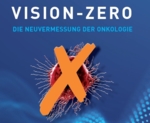
Call for a comprehensive master plan for preventing and treating cancer
While a cancer-free world may seem unrealistic given the increasing numbers of cancer cases, we need to reach a social consensus that cancer deaths are unacceptable and that everything possible must be done to prevent them. Leading cancer researchers around the world are calling for more investment in prevention research and cancer screening to move towards the vision of a near cancer-free world.
https://www.gesundheitsindustrie-bw.de/en/article/news/call-for-comprehensive-master-plan-preventing-treating-cancer -
Article - 26/07/2019 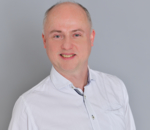
New test assay leads to discovery of new influenza virus infection route
Researchers from the University of Freiburg have recently discovered a completely new mechanism that influenza viruses use to infect cells. This discovery was partly made possible by a so-called emulsion coupling assay - an extremely sensitive, digital detection method developed by Actome GmbH in collaboration with scientists from the Freiburg University of Applied Sciences and Hahn-Schickard. The assay is used to count individual molecules and…
https://www.gesundheitsindustrie-bw.de/en/article/news/alternativer-infektionsweg-fuer-grippeviren-durch-neues-testverfahren-entdeckt -
Article - 01/07/2019 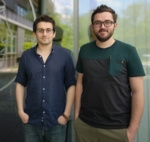
Microswimmers for guided drug delivery
Medicines should act as quickly as possible and ideally only at the site of disease. However, this may be difficult when the medicines are taken up via the digestive tract or the blood system. Researchers at the Max Planck Institute for Intelligent Systems in Stuttgart have now developed a biohybrid microrobot consisting of red blood cells and bacteria that can be loaded with active ingredients.
https://www.gesundheitsindustrie-bw.de/en/article/news/microswimmers-guided-drug-delivery -
Article - 11/06/2019 
New pathogens in beef and cow's milk contributing to the risk of cancer
A team of researchers led by Nobel laureate Prof. Dr. med. Dr. h.c. mult. Harald zur Hausen has discovered a new type of infectious agent in dairy and meat products produced from European cattle that increases the risk for colon and breast cancer. These so-called Bovine Meat and Milk Factors (BMMFs) are small DNA molecules that are similar in sequence to both bacterial plasmids and certain viruses.
https://www.gesundheitsindustrie-bw.de/en/article/news/new-pathogens-in-beef-and-cows-milk-contributing-to-the-risk-of-cancer -
Expert interview on NTDs – part 2 - 29/05/2019 
Neglected tropical diseases - Gisela Schneider: the burden of disease
"Leaving no one behind". The motto of the 2030 Agenda with its 17 Sustainable Development Goals (SDGs) which was signed by the United Nations (UN) in 2015 makes clear that combatting poverty and its consequences is an essential part of sustainable development. The fight against neglected tropical diseases (NTDs) is defined as a major aim of the Agenda’s sustainable development goals. The World Health Organisation (WHO) regards twenty…
https://www.gesundheitsindustrie-bw.de/en/article/news/neglected-tropical-diseases-gisela-schneider-the-burden-of-disease -
New edition - 24/05/2019 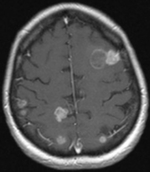
Tumour metastasis
Cancer is usually not curable when metastases have formed in the body. Metastases are often resistant to drugs that have successfully eliminated the primary tumour. The basic features of the complex process of metastasis are now known, but many details still remain elusive. Intensive research activities are focusing on new therapeutic concepts aimed at developing effective anti-metastatic therapies.
https://www.gesundheitsindustrie-bw.de/en/article/dossier/tumour-metastasis -
Expert interview - 13/05/2019 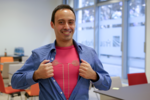
Innovation management in the life sciences – Inova DE provides insights
Personalized medicine, medical technology, digital health and artificial intelligence are revolutionizing diagnostics and product development. Analyses are becoming faster and more precise, and data volumes can now be networked and used effectively. The goal of improving people's quality of life is within reach, and this will also strengthen Germany’s future viability. However, not every good idea can be turned into a marketable commodity.…
https://www.gesundheitsindustrie-bw.de/en/article/news/innovation-management-in-the-life-sciences-inova-de-provides-insights -
Article - 23/04/2019 
How can care infrastructures benefit from digitization?
The pilot project NeCTra (Networking - Care - Transparency) investigates how care processes within an urban social environment can be improved by using digital technologies. The goal is to bring together all partners and institutions in real time so that people in need of care and those seeking advice receive appropriate support more quickly.
https://www.gesundheitsindustrie-bw.de/en/article/news/how-can-care-infrastructures-benefit-from-digitization -
Article - 16/04/2019 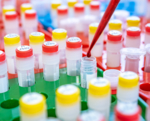
Tumour monitoring using liquid biopsy
Liquid biopsy, the analysis of cancer biomarkers and circulating tumour cells in body fluids such as blood, is revolutionising the diagnosis and monitoring of cancer. It has also been possible to expand circulating tumour cells from the blood under laboratory conditions. It is expected that in the future, liquid biopsy will be able to precisely characterise tumour cells at every stage of a cancer.
https://www.gesundheitsindustrie-bw.de/en/article/news/tumour-monitoring-using-liquid-biopsy -
Expert interview on NTDs – part 1 - 11/04/2019 
Neglected tropical diseases – Carsten Köhler: impulses from Baden-Württemberg
More than one billion people worldwide suffer from neglected tropical diseases (NTDs). NTDs are mostly poverty-related infectious diseases that prevail in tropical countries due to lack of research and measures to detect, prevent and control them. Dr. Dr. Carsten Köhler reports on the political, economic and scientific contributions Germany and Baden-Württemberg can make to successfully change this situation.
https://www.gesundheitsindustrie-bw.de/en/article/news/vernachlaessigte-tropenkrankheiten-carsten-koehler-impulse-aus-baden-wuerttemberg